Entrance to folk craft area in Lucy Larcom Park
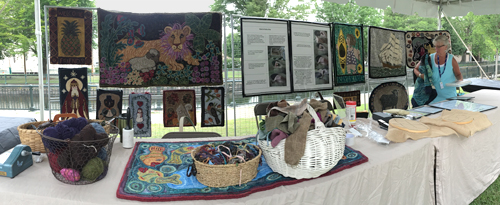
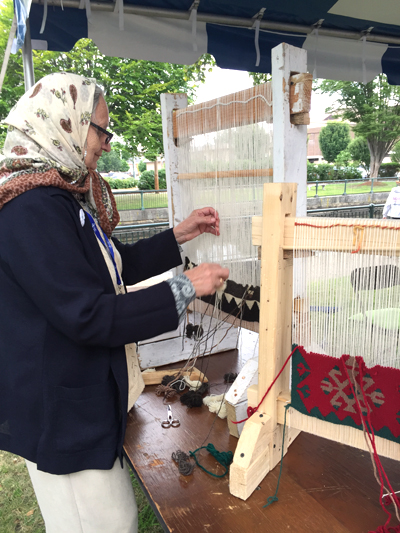

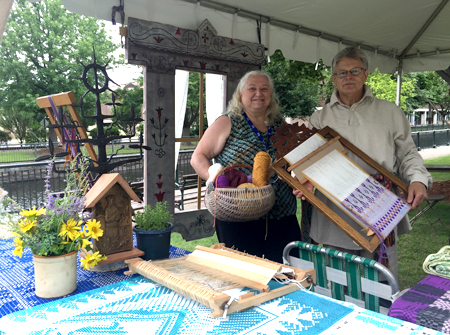
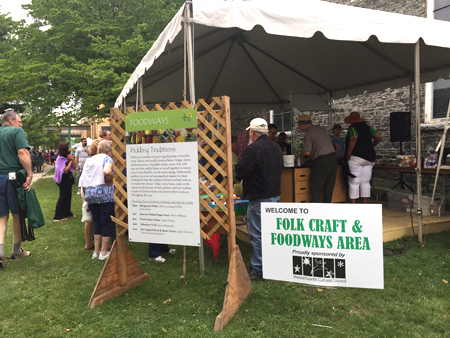
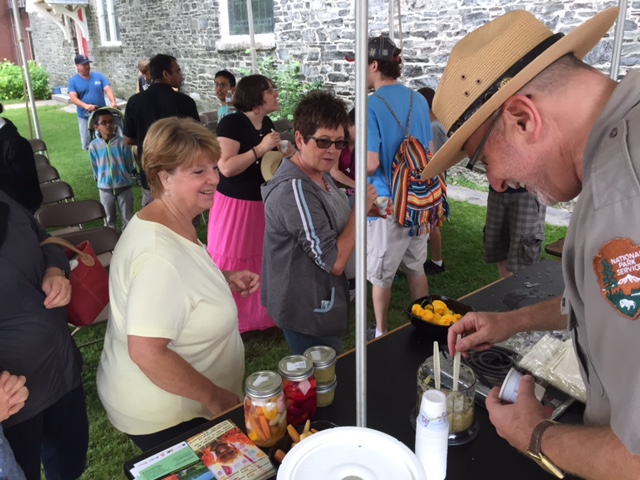
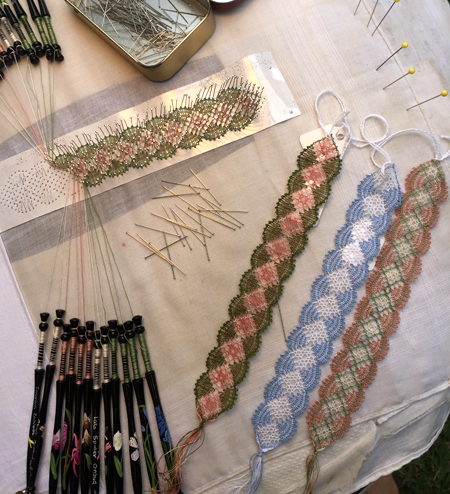
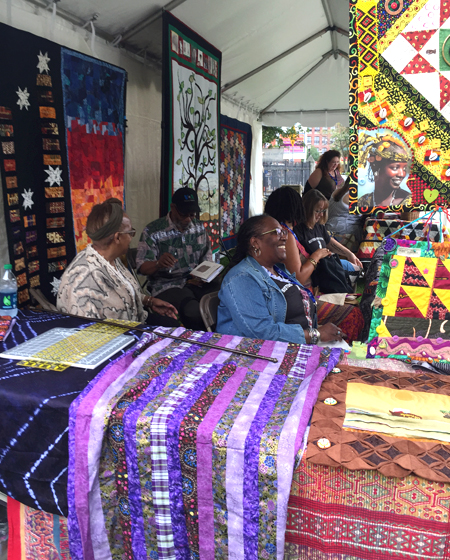

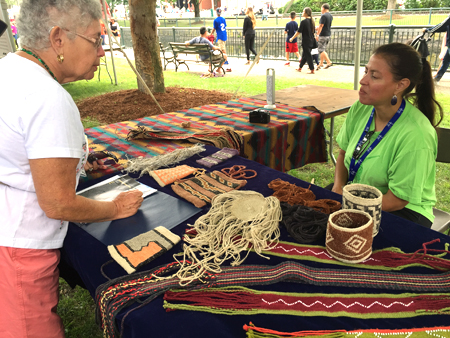
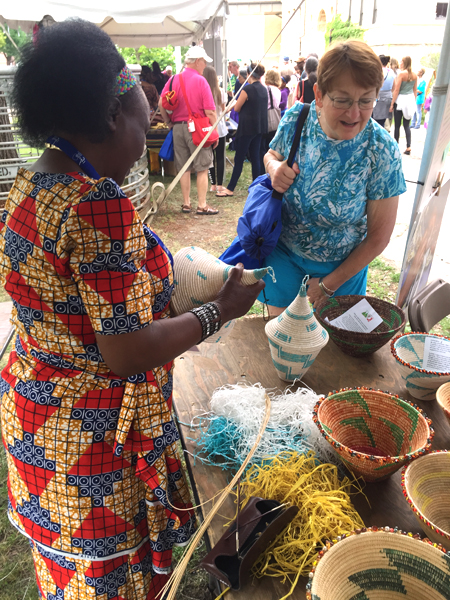
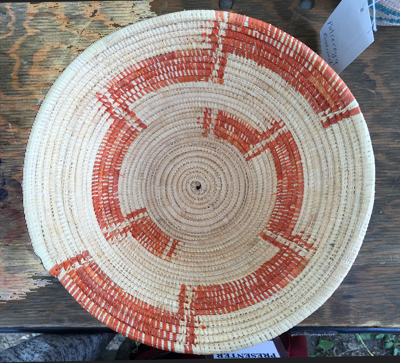

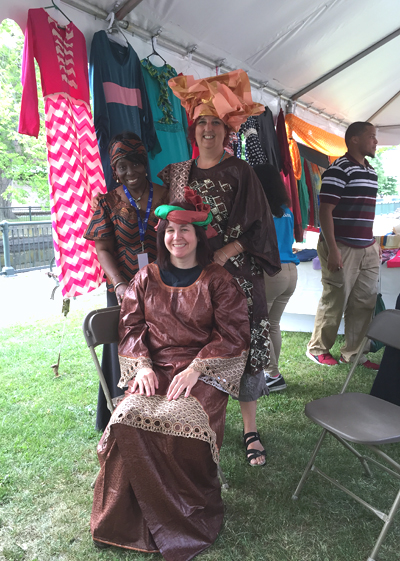

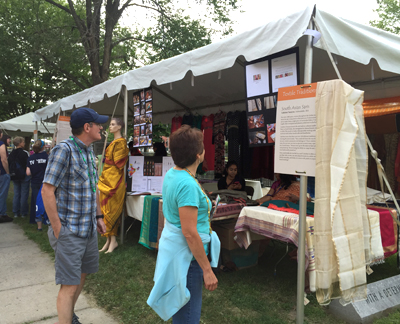
Folk Art and Heritage in Massachusetts
Entrance to folk craft area in Lucy Larcom Park
















The Lowell Folk Festival is coming right up on July 24-26th. In addition to checking out music and dance performances and sampling some of the best ethnic food served at a festival, consider spending some time in the Folk Craft area located in Lucy Larcom Park. This year we are featuring 13 different textile traditions. From noon until 5:00 p.m. on Saturday and Sunday, artisans will demonstrate traditional techniques used in the making of textiles: twining, coiling, weaving, quilting, hooking, and lace making. Others will explore how textiles are used in what is called the “unstitched garment,” i.e., wrapping Indian saris, African headwraps, and Islamic headscarves.
You will discover how the pattern of a textile’s weave, its thread count, and the way it is worn can convey religious belief, marital status, wealth, or social standing. Come compare quilting traditions from African American and Anglo American quilting guilds. Watch how embellishments such as bobbin lace are created. See how you look in an African head wrap. Try your hand at hooking a rug . . .
If you get hungry and tired and want to sit down, the Foodways demonstration area is close by. My colleague and friend Millie Rahn has put together a tasty program on pickling traditions.
“Pickling is a method of preserving food that is found in many cultures and usually involves brine, vinegar, spices, and fermentation. Vegetables, fruits, meats, fish, and nuts are often pickled alone or mixed together in various ways to keep food for out-of-season eating. Traditionally, pickling was a way of ensuring food sources for those working far from the comforts of home on land and sea, no matter the climate. Today, many home cooks in the region use the bounty of their gardens and local markets to pass on favorite recipes and preserve their foodways throughout the year.”
The schedule is below. As in past years, you will have a chance to ask questions and to taste samples once each demonstration is over.
12pm: Refrigerator Pickles Mill City Grows/UTEC; Lydia Sisson
1pm: Jamaican Pickled Pepper Sauce, Nicola Williams
2pm: Northern Indian Cholay, Yogesh Kumar
3pm: Lithuanian Pickles, Irena Malasaukas
4pm: New England Bread Butter Pickles, Jackie Oak with Tricia & Gerard Marchese
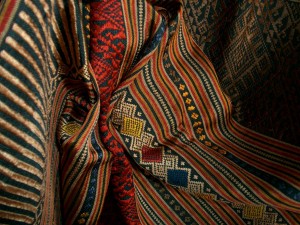
Come join us for a film, a hands-on weaving experience, and a faciliated conversation about the complex meanings of cultural heritage for refugees.
Mone Saenphmmachak is a master weaver. She is also a Lao refugee, tormented by survivor guilt. Resettled in St. Louis during the 1980s, she finds factory seamstress work sewing gun holsters. In her precious spare time, she weaves traditional Lao skirts and teaches the next generation of Laotian children. Winning a National Heritage Award in 1993, Mone ultimately chooses to give up her looms.
Weaving Bitter with the Sweet is a moving documentary film that explores the refugee experience and its impact of sustaining cultural heritage. The film invites viewers to “unpack” assumptions about the meaning of cultural heritage for refugees — a topic with the potential to resonate with many re-settled communities here in Lowell.
7:00 p.m. Welcome & introduction
7:15 p.m. Hands-on weaving experience
7:45 p.m. Film screening
8:15 p.m. Facilitated conversation
This Lowell Folklife Series event is co-sponsored by Lowell National Historical Park, Lowell Film Collaborative, Tsongas Industrial History Center, & Massachusetts Cultural Council.
For more info, call 978-275-1719.
For information about Teacher Professional Development Points, contact the Tsongas Industrial History Center: TIHC@uml.edu